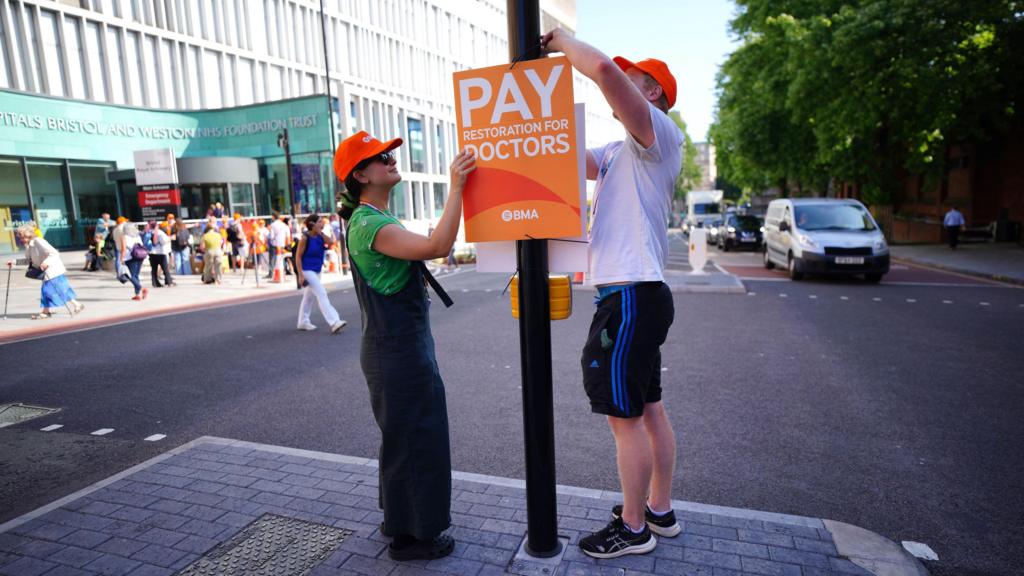Negotiations between the government and the British Medical Association (BMA) are set to resume in the coming days, aimed at resolving the ongoing dispute involving resident doctors in England.
This development follows a meeting held on Tuesday between BMA leaders and Health Secretary Wes Streeting, subsequent to a five-day strike that concluded at the end of July.
According to the BMA, both parties have agreed to a “window for negotiations,” indicating a series of discussions scheduled over the next several weeks, during which no further strike action is anticipated.
Last week, Secretary Streeting expressed willingness to reconvene, but stated he would not negotiate on pay, citing that resident doctors, formerly known as junior doctors, have already received pay increases totaling nearly 30% over the past three years.
Previous discussions, held prior to July’s five-day strike—the 12th since March 2023—centered on issues such as career progression, working conditions (including rotas), and out-of-pocket expenses like examination fees.
The BMA characterized Tuesday’s meeting as “informative,” noting that it led to a “greater mutual understanding” between the two sides than previously achieved.
While the union expressed its desire to collaborate with the government on non-pay related matters, it emphasized that progress on the issue of pay is essential moving forward.
The union contends that despite the pay increases, resident doctors’ pay remains a fifth lower than its 2008 level, once adjusted for inflation.
Dr. Ross Nieuwoudt and Dr. Melissa Ryan, co-chairs of the BMA resident doctors committee, jointly stated: “We have agreed [to] a window for negotiations, which we hope the government will use wisely.”
“We are working to ensure strike action does not need to be repeated and will give time to explore solutions. However, doctors and patients both deserve a resolution sooner rather than later.”
They also called upon the government to address what they described as a shortage of available positions after the second year of training, when resident doctors transition into specialty training.
This year, there were over 30,000 applicants vying for 10,000 positions at this career stage, although a portion of applicants may have been doctors from abroad.
Resident doctors comprise nearly half of the medical workforce, including doctors newly graduated from university and those with up to a decade of experience.
A spokeswoman for the Department of Health and Social Care described Tuesday’s meeting as “constructive” and affirmed the government’s commitment to “continue engagement through the summer with the aim of preventing further disruption to the NHS and patients.”
However, she added: “We have been clear that we cannot go further on pay this year, but there is shared ambition to explore and address some of the unique additional costs that resident doctors incur through their training and work.”
Unite union says Wrexham council is to blame for disruption caused by the planned industrial action.
More than 1,000 drivers could take action after rejecting an “unsatisfactory” pay offer.
The free service provides confidential 24/7 support to students struggling with exam-related worry.
The hospital trust has welcomed the 167 medics, formerly known as junior doctors.
Tom Parker was treated in one of 70 harbour health clinics after breaking his fibula fishing at sea.

